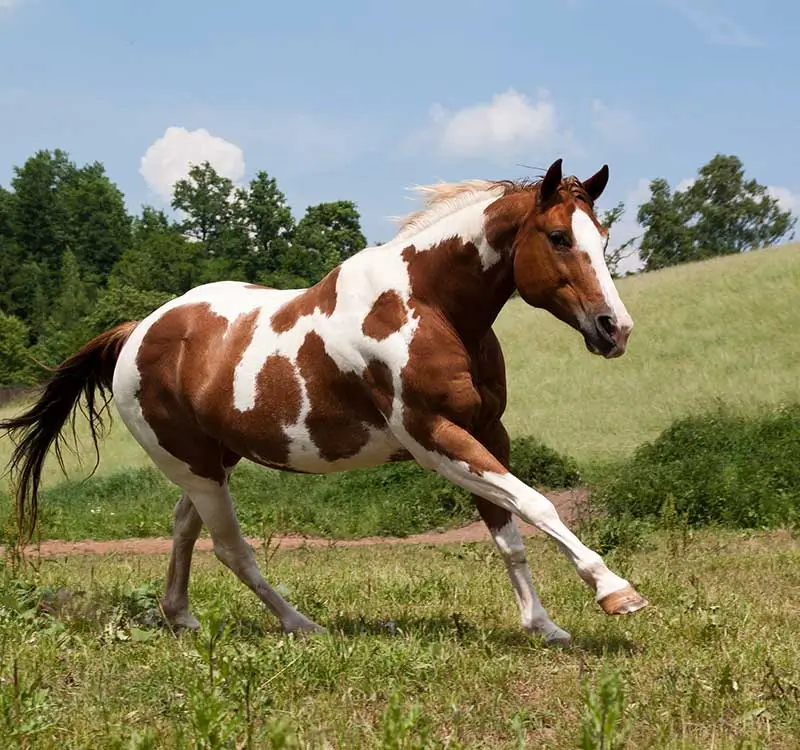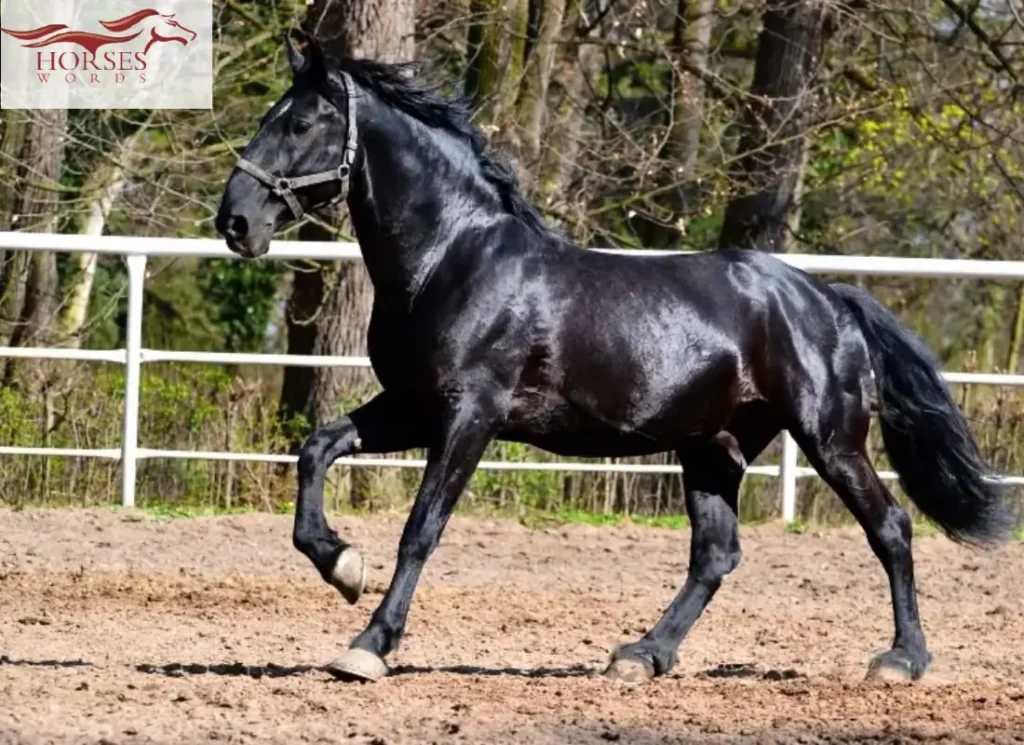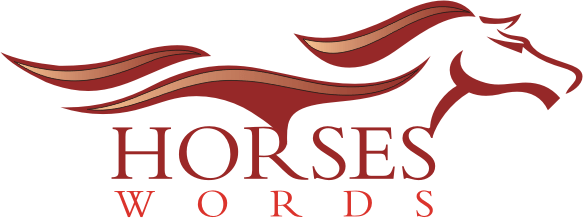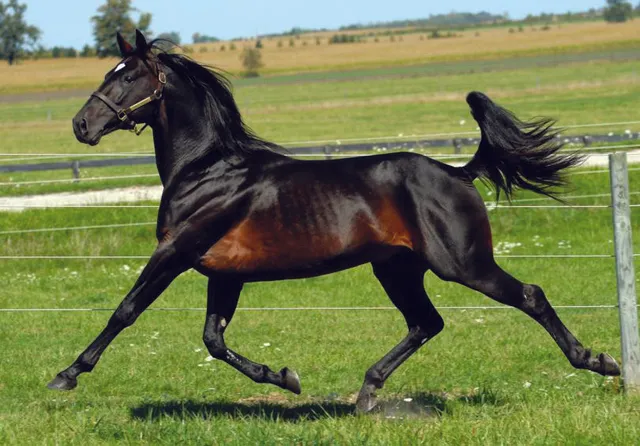Horses Lifespan: A Guide to Horse Supporting and Longevity
Man has known the company of horses for ages with horses as companions, workers, sports and leisure. The life expectancy of these wonderful animals, however, depends on several things such as breed, diet, and lifestyle, and healthcare.
This long article will include breed differences as well as additional tips that an owner should follow to ensure their horse has a long and healthy life.
Introduction to Horse Lifespan
Horse lifespan can be different depending on a myriad of factors and can be useful for any horse owner or caregiver to know about. It’s important that you know that most horses today have a life expectancy of between 25 and 30 years, though if they are well cared for they can reach 35 or so.
The life cycle of a horse is similar to any other living being, where a horse is a youngster full of energy, a middle-aged person filled with freshness and a senior-citizen-stage horse that trots peacefully.
This can be useful to attempt to adapt some of the care procedures in order to maintain the horse happy and proper at any time throughout its age.
Various Things Affecting Horses Lifespan
There are vary elements that may influence the length of lifespan of a horse varying from genetics to regime. Here’s a closer look at these influences:

Genetics and Breed Differences
The present study shows that the genetic make up of a horse influences the likely life span of that particular animal. One breed is likely to suffer from specific diseases and physical features that may either add to its lifespan or diminish it.
- Arabian Horses: Arabians are very hardy and can live to extremes of age equal to 25-30 years or more known to be among the oldest breeds of horses. This is specifically because their physique is relatively small and they are not as vulnerable to the diseases that beset other breeds.
- Thoroughbreds: Thoroughbreds are bred for racing therefore they are living for an average of 20-25 years. Experienced from racing, the health complications that may result from high-intensity training can be acutely obtained in later stages in life.
- Quarter Horses: Quarter horses, a versatile breed of horses, are usually expected to live between 25 to 30 years. This makes them well suited for an array of uses such as work on a ranch and for light leisure riding and this adds longevity to breeds if there is good care.
- Draft Horses: Heavy breeds that are bigger in size including the Clydesdale and Shires will live between 18- 25 years on average. Their small size can cause arthritis, bone disorders and many other diseases that affect their life span.
Diet and Nutrition
Proper feeding and nutrition is one of the single most important keys to lifespan in a horse. Horses are grazers and are intended to ferment forage most of the time during the day.
Kind food and plenty of clean water rich in fiber and vitamins and minerals in the right proportions enhance health and performance of the athlete.
- Fiber: It is, therefore, necessary to feed horses on a diet with fiber content to support their copious and sensitive system. The best feeding is high quality hay or pasture grass which supplies energy and maintains the gut functioning. Increasing the fiber intake can sometimes lead to conditions such as colic, or other gastrointestinal problems.
- Vitamins and Minerals: Calcium, phosphorus and Vitamins A, E, D are all classed as ‘essential nutrients’ and help maintain healthy bones and muscles and fight off infections. Lack of these nutrients can reduce the health of a horse and perhaps particularly as they age, they are subject to ill health.
- Hydration: Proper hydration by clean and fresh water is of utmost importance and is depended on for digestion, temperature control and joint functions. Loss of body water can cause kidney related illnesses.
Exercise and Lifestyle
Exercise is very important to ensure horses achieve both physical and mental health. It is acceptable to find out that horses with a regular exercise schedule are healthier, because exercising is beneficial for muscles and joints, and keeps the circulatory system in good condition.
- Mental Health Benefits: Social-related activities such as exercising helps to break the boredom and stress that may otherwise laden a horse. As well known horses are gregarious animals they need the presence of cohorts, or at least one, and free space to exercise.
- Physical Health Benefits: Its accomplishments plan its obesity, mellitus muscles and diminishes arthritis. However, the sort and frequency of the exercise should be based on one’s age and physical health of the horse.
Environmental Conditions
Consumer benefits of amelioration are that the environment in which a horse lives can have a straightforward and profound effect on that animal’s lifespan.
It is generally the case that horses are best suited to living in environments that are large, tidy and as comfortable as is practicable.
- Space to Roam: Horses naturally graze and therefore require environments that will allow their movement. Those pastures which afford them natural ground to graze from are beneficial to their physical and mental well-being.
- Climate Control: Severe weather conditions are inimical to horses in particular. Humidity even if cold might affect the respiratory system due to infections, while high temperatures will make people dehydrated and stressed. Housing them so that they may be shielded from harsh weather is important to make their lives comfortable and longer.
- Social Interaction: Horses are gregarious and do well when grouped with other horses in groups. If they remain isolated they are likely to cause stress and result in depression affecting their physical and mental state.
Horse Lifespan Stages
Understanding the different stages of a horse’s life is key to meeting their needs at each stage:
Foal Stage (Birth to Weaning)
Newborns are young horses that belong to the family of horses. For the first six months of their lives, foals require their mother’s help for feeding and being shielded from danger. This is important in development of the immune system, growth and to learn to interact with other horses of the same generation.
Juvenile Stage (1-3 Years)
Juvenile stage this is because horses are still physically and mentally growing and developing throughout this stage. They are quite active and this makes their diet to be fixed on growth without being overweight. Physical training may start, but young bones and joints need to be protected against undue stress.
Adolescent Stage (3-6 Years)
It is still transitioning from childhood to adulthood. Rates of development may increase training during this stage, but the physical growth of horses has not yet peaked. It is very important to ensure that you undergo a balanced kind of exercise that will help strengthen our bodies without posing any danger to our health.
Adult Stage (6-15 Years)
Horses are also fully grown up in adulthood and at most optimal for racing or other performance related activities. Depending on its training and physical fitness, they may engage in one or the other of any of these activities. This is the right time when consistent exercise, special diet and quality vet care is necessary for the breed.
Senior Stage (15+ Years)
In case a horse reaches the age of seven or above, he is likely to slow up, and develop complications like joint inflammation, dental disease, and declined muscularity. Lifestyle modifications means changes in feeding, exercise and other veterinary intervention to control changes that accompany aging.
Signs of Aging in Horses

Essential care and treatment of equine geriatrics thus call for the knowledge of various signs of aging in horses. Common signs include:
- Physical Changes: Senior horses may get a grayish appearance on the muzzle and experience a loss of top-line muscle. Their coat might fade, or perhaps they would lose weight.
- Behavioural Changes: Senior horses may be less active and therefore not nearly as fierce. Some may become shy or lose and childish behaviors.
- Dental Wear and Tear: In general, oral diseases can be considered the most widespread diseases in aged horses. Uneven wear can make it difficult for them to chew, which will in turn limit their recommended foods that they are supposed to chew before swallowing.
- Digestive Changes: Older horses may find certain foods hard to metabolize and eating may be a problem hence the older horse may need foods that are easy for him to chew and digest.
Common Health Problems of Old Horse
It is important too to understand that the hormonal changes that occur in aged animals make them more susceptible to some diseases. Understanding what is likely to happen when these conditions are set in is always helpful in their management.
Arthritis and Joint Health
Arthritis is common among the older generations of horses as they will have been active for many years. The clinical signs associated with this disease are stiffness, limping and pain. Treating arthritis might include use of drugs, joint supplements or a specific exercise regime.
Dental Issues
It is less commonly known that dental problems relating to teeth wear and tear impair the capability of the older horses to masticate and digest the food as required. Such conditions like weight loss can be prevented through planned dental checkups, and they are able to receive their necessary nutrients.
Digestive Problems
Horses that are aged are highly susceptible to digestive illness common among horses known as colic. Owners should feed their pets easily digestible feeds, and also ensure that they groom their pets teeth often enough.
Weight Management
It is not a rare case for older horses to either become too thin or too chubby. A diet suitable for their age and condition is used to avoid either obesity or serious undernourishment.
Tips on How to Help Your Horse Live Longer
For any equine enthusiast it is always desirable to work toward the goal of extending your horse’s lifespan while at the same maintaining its optimum health.
- Proper Nutrition: Another evidence of diet plays a role in enhancing the duration of life involves adequate intakes of fiber, vitamins, and minerals.
- Consistent Exercise: Low intensity exercises involving the muscles and cardiovascular systems are necessary for the good health of joints.
- Veterinary Care: Well baby care avoids missing important appointments with the doctor, thus keeping track of physical ailments and updating vaccinations.
- Calm Environment: Acts such as company and regime put them at ease hence bringing about a decreased level of stress.
Care Practices to Support a Horse’s Lifespan
Preventive care is key on keeping a horse as healthy as possible for the longest period of time. Regular check-ups, vaccinations, dental check-ups and parasite control are vital to detect problems early and keep your horse at the top of his game.
Annual Veterinary Check-Ups
Veterinary exams, at least once and preferably twice annually, help identify health problems in their earliest stages. These evaluations usually consist of an exam, a dental check, and bloodwork if needed to make sure everything is working as it should.
- Dental Care: As with all aspects of health, dental care also gains importance in old age; some unevenness can cause inconvenient chewing or malnutrition (the forage should be softened). For most horses floating is performed by a vet and it is used to smooth off the sharp edges and correct misalignment.
- Blood work: Blood tests may help to identify other diseases such as anemia, kidney disease, or infections present in the horse that does not show any observable clinical signs.
- Vaccinations: Annual vaccinations are required for horses. These vaccines include those for West Nile virus, tetanus, equine influenza and rabies. Just keeping up with vaccinations is important to prevent serious illnesses or death.
Hoof Care and Maintenance
Here is another factor in keeping a horse healthy that plays right to the length of life. As the saying goes, no hoof, no horse.
- Farrier Appointments: Most horses need a farrier every 4-8 weeks to balance and trim their feet. And bad hoof care is the main cause of lameness, infections, and stretching or tearing the joints.
- Senior Horse Shoes: Senior horses may benefit from special shoes or boots to support weakened joints (like our senior horse sandal), or arthritic conditions.
Deworming and controlling parasites
Parasite Infestation — Parasites are the reason behind why horse health since parasites can cause anything from weight reduction to colic & even anemia in horses. A good deworming schedule is one of the most important factors that need to be taken care of to avoid parasites.
- Deworming Programs: Collaborate with your vet to create a deworming program specific to your horse based on its lifestyle and environment. Dewormers are needed for control of parasites; however, as with all veterinary products, we risk developing resistance to them by overusing them. Either way, targeted deworming is usually the most appropriate approach.
- FEC: Fecal Egg Counts are useful for assessing how strong any parasite burden may be and can help identify when deworming is needed. This lessens unneeded dosing and decreases the chance of creating an undesired drug resistance.
Dental Health Management
Elderly horses can also suffer from dental issues which are obviously detrimental to quality of life. These horses are able to eat more efficiently, can better digest and absorb nutrients, and are less prone to digestive issues if they have healthy teeth.
- Routine Dental Floats: Regular floating (filing down) of teeth prevents sharp points and malocclusions that cause chewing difficulties or pain
- Senior horses lose teeth or develop dental issues, consequently swallowing hay whole. Soaked hay cubes and senior feed pellets are soft Feeds for Seniors the best to chew.
Specialized Care for Senior Horses
Undoubtedly as horses mature, their requirements change. This is how their health can be enhanced by the change in diet, exercise, and daily routine during their senior years.
Nutrition for Senior Horses
Some senior horses can hardly digest other foods then require more nutrients for mummy to maintain their brittle muscles and joints.
- Senior Feeds: Formulated to include highly digestible ingredients, much commercial senior feeds have higher fiber and a lower sugar load, both of which may be helping for a senior horse.
- Find joint supplements: Adding joint supplements like glucosamine, chondroitin or MSM may ease arthritis and limbs in older horses.
- Weight Management: Weigh your horse on a regular basis so that we can find out when they start to lose condition or become overweight which both put stress on ageing joints and organs.
Adjusted Exercise Routine
While a lot of senior horses may benefit from exercise, sometimes it is better to reduce the degree of effort to prevent over-exertion.
- Gentle Exercise: Light riding, lunging and ground work can help keep muscle tone and flexibility with less stress on joints.
- Mental Stimulation: A senior horse can still benefit from light training, tricks, or bonding activities that mentally stimulate and prevent boredom. Basic activities, even as little as a walk or being in a different place are fun to do.
Setting Up a Comfortable Environment
To ensure the overall comfort and happiness of older horses, some adjustments to their environment may need to be made.
Shelter and Bedding
Giving shelter with appropriate bedding is helpful as it offloads the joints of an older equine while keeping them warm and cozy in cold weather.
- Shelter Access: Equines must be able to find cover, eg from rain/wind/hot sun (soft bedding also structures the energy impact when lying down).
- Winter Wear: Senior horses commonly have trouble controlling body temperature, but blankets or heated stalls can keep them warm during the cold months.
Accessibility
This can be especially true for older horses, and in such cases the ensuring accessibility modifications may add up to a significant level of comfort and safety.
- Simplified Feed & Water: Provide feed and water that is simple to access and clean. For horses with neck or joint problems, a high feeder or waters are often of value.
- Less stall dust: For older horses with lung issues, dust-free stalls mean less respiratory irritation.
What Is An Average Horse Lifespan In The Wild
In general wild horses will probably live to be younger than 30 years old and rarely reach over 15-20 years. Wild horses with limited access to regular food, clean water, veterinary care and basic shelter may be at a greater risk for predators, injuries and diseases.
The natural world wears their bodies out faster, which causes them to age quicker than domesticated horses.
Role of Technology in Increasing Horse Lifespan
Improvements in veterinary technology have certainly made a difference to how long our horses can now live.
- Horse Scoping: Tools such as ultrasounds, MRIs, and digital radiography help doctors diagnose problems sooner—implementing preventive care and better preventing or reversing damage done from joint issues, internal trauma, and infections.
- Complex Surgical Procedures: The joint surgeries, colic operations, and even dental extractions made possible by medical advances have allowed many horses to live healthier, longer lives into their senior years.
- Wearable technology: Wearable devices measuring vital signs, movement and behaviour can warn caretakers about emerging health problems before they become serious enabling proactive care.
Importance of Monitoring Behavioural Changes
Behavioural changes are some of the first signs you see in older horses that have underlying health problems. So just having a habit of watching your horse can help you identify and react to potential problems earlier.
- Reduced Appetite: If your pet suddenly stops wanting to eat, this could be dental pain but may also indicate stomach issues or stress.
- Loss of Interest in Others: Horses who shun their friends or appear withdrawn may be physically ill, lonely, or suffering from a mental health disorder.
- Hesitant to Move: If the horse seems reluctant to walk or trot, it may be suffering from joint pain or weakness, and should be seen by a vet.
Identifying and Dealing With Horses Who Have End-of-Life Needs
One of the most difficult aspects of ownership for many horse owners is deciding on end-of-life care. So, while we can always try to fix things, being able to identify when a horse is not doing well irrespective of what we do (in a timely manner) will allow owners to make decisions that are kinder.
Signs of Declining Quality of Life
The presence of the following signs may indicate that it is time to discuss end-of-life care with a veterinarian:
- Chronic limping or difficulty standing comfortably
- Profound weightloss or muscle wasting
- Disinterest in food and social events
- Incurable chronic pain
Euthanasia Considerations
Sometimes, if a horse is in pain or distress and no hope of improvement exists, euthanasia may be the kindest option. You may want to discuss this with a vet, as it can provide timing and facilitate this process in the least painful way.
Leaving a Legacy of Caring For Your Older Horse
Taking care of an older horse can be so rewarding. Over years of sharing companionship, trust and mutual understanding develop between the horse and owner making these years one of if not the most fulfilling times for both horse and owner. With an emphasis on palliative nursing, home comfort, and their preventative medicine, horse owners can empower their long-serving companions to make it through their golden years successfully.






